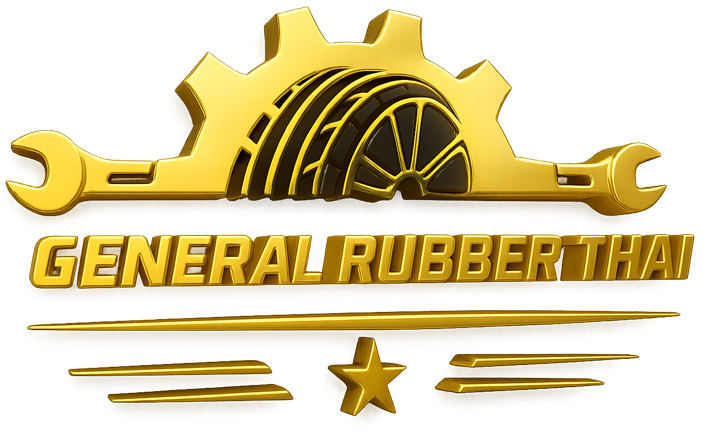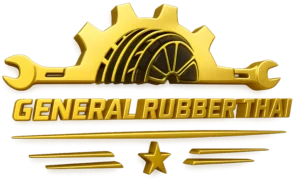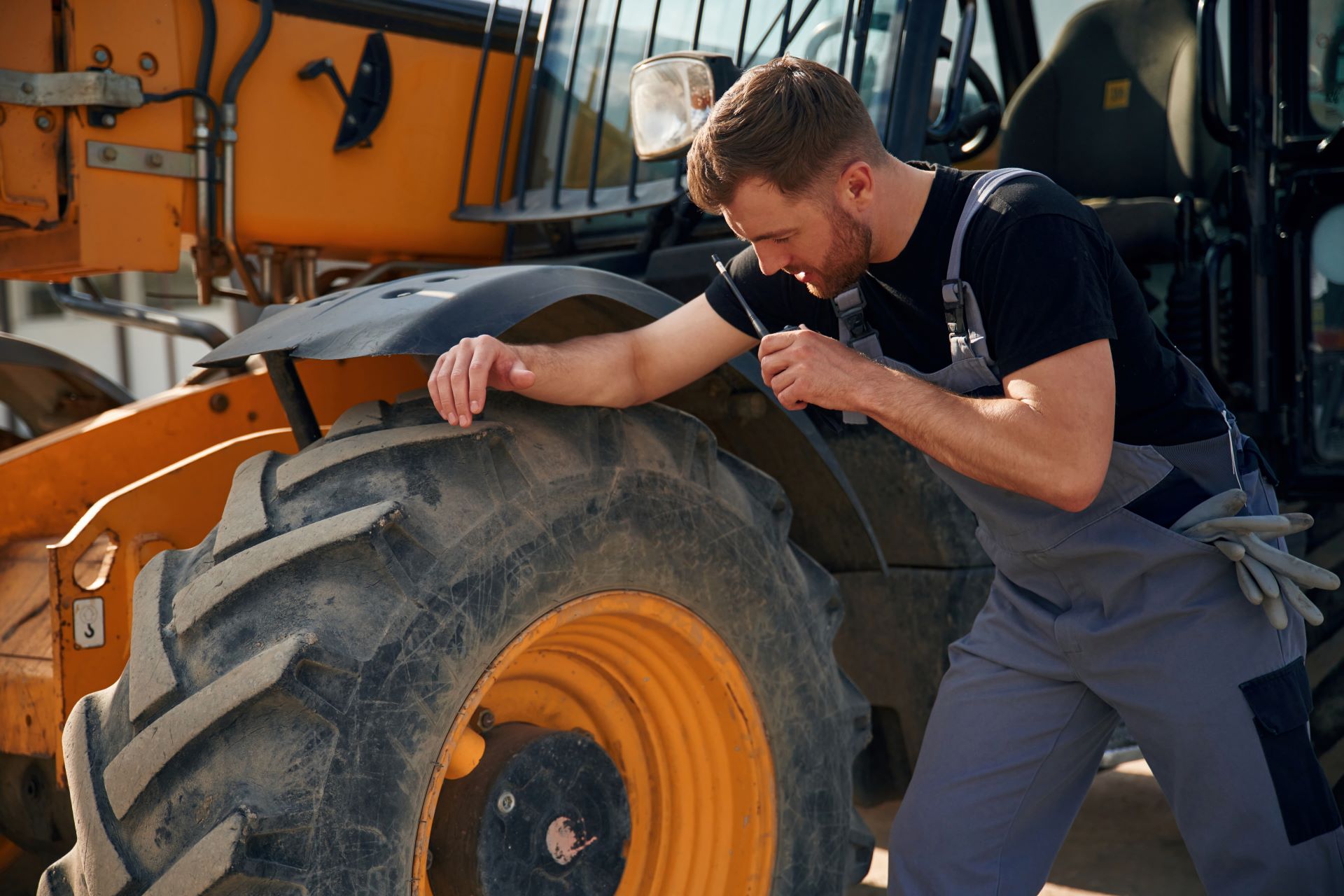Benefits of Using Solid Tires in Heavy Machinery
When it comes to heavy machinery, selecting the right tires is crucial for both performance and safety. Solid tires are a popular choice due to their durability and reliability. Unlike pneumatic tires, which are filled with air, solid tires are made entirely of rubber or a similar material. This makes them extremely tough and resistant to damage.
Solid tires are commonly used in environments where sharp objects and rough terrain can easily cause punctures. Their robust design allows them to carry heavy loads without the risk of deflation. For those of us operating forklifts, loaders, or other heavy machinery, solid tires can be a game-changer in terms of reducing downtime and maintenance costs.
Using solid tires can make a big difference in productivity, especially in demanding industries like construction, mining, and manufacturing. Since solid tires don’t go flat, they provide a reliable solution for continuous operation. This reliability can save time and money, making it easier for us to focus on our work without worrying about tire issues.
What Are Solid Tires?
Solid tires, also known as airless tires, are types of rubber tires that are not filled with air. Instead, they are made from solid rubber or a mix of rubber and other materials. These tires are designed to withstand heavy loads and rough conditions. Solid tires are commonly used in industries where there is a high risk of tire damage, such as construction, mining, and waste management.
Unlike pneumatic tires, which are filled with air and have a hollow interior, solid tires do not deflate or get punctures. This makes them extremely reliable and long-lasting, even when used in demanding environments. The absence of air reduces the risk of blowouts, ensuring that heavy machinery can continue to operate without unexpected downtime.
Advantages of Solid Tires in Heavy Machinery
Durability and Longevity
One of the main benefits of solid tires is their durability. Since they are made from solid rubber, they wear down much slower than pneumatic tires. This means they last longer and don’t need to be replaced as often, making them a cost-effective choice for heavy machinery. Moreover, solid tires are designed to handle rough terrains and heavy loads without getting damaged easily, which further extends their lifespan.
Puncture Resistance
Solid tires are highly resistant to punctures. This is especially important for heavy machinery that operates in environments with sharp objects or debris, such as construction sites or landfills. With solid tires, there’s no risk of sudden flats, which can cause delays and even safety hazards. The puncture resistance of solid tires ensures that the machinery can keep working without interruptions.
Load Capacity
Solid tires have a higher load capacity compared to pneumatic tires. They can carry more weight because of their robust construction. This is crucial for heavy machinery that needs to transport large loads. The increased load capacity helps in improving the efficiency and productivity of operations, as the machinery can carry more materials in a single trip.
Maintenance Ease
Maintaining solid tires is straightforward. Since they don’t deflate, there’s no need for regular air pressure checks or inflation. This reduces the overall maintenance time and cost. Solid tires also don’t require frequent repairs, as they are less likely to get damaged. Easy maintenance means that the heavy machinery can stay operational for longer periods, leading to less downtime and increased productivity.
When to Choose Solid Tires Over Pneumatic Tires
Ideal Applications and Environments
Solid tires are best suited for environments where sharp objects, rough terrain, or heavy loads are common. They are ideal for construction sites, mines, and waste management facilities where punctures and blowouts from pneumatic tires can cause costly downtime. These tires excel in forklifts, loaders, and other heavy machinery that frequently operate on hard and uneven surfaces.
In contrast, pneumatic tires are better suited for applications requiring a smoother ride and where the terrain is not overly harsh. They are often used in agricultural settings, light construction, and transportation where the risk of punctures is lower, and a more cushioned ride is desired for better operator comfort.
How to Maintain Solid Tires for Optimal Performance
Regular Inspections
Even though solid tires are highly durable, regular inspections are essential to ensure they remain in good condition. Check the tires for any signs of wear, cracking, or damage. Look for debris or sharp objects lodged in the tread that could cause damage over time. Regular inspections help to identify issues early before they lead to bigger problems.
Proper Cleaning Techniques
Keeping solid tires clean can extend their lifespan. Use water and a mild detergent to clean the tires, removing any dirt, mud, or chemicals that may have accumulated. Avoid using harsh chemicals that can damage the rubber. Cleaning not only helps preserve the tire material but also makes it easier to spot any potential issues during inspections.
Tips for Storing Solid Tires
Store solid tires in a cool, dry place away from direct sunlight and sources of ozone like electrical equipment. Exposure to extreme temperatures, sunlight, and ozone can degrade the rubber over time. If storing the tires for an extended period, lay them flat on the ground or store them vertically to prevent deformation. Ensure the storage area is clean and free from sharp objects that can cause damage.
Conclusion
Solid tires offer a range of benefits for heavy machinery, from their durability and puncture resistance to their high load capacity and ease of maintenance. These advantages make them an excellent choice for industries that operate in harsh environments where reliability and performance are critical.
Knowing when to choose solid tires over pneumatic ones can significantly impact the efficiency and safety of your operations. For environments filled with tough conditions and heavy loads, solid tires are the way to go. They provide the peace of mind that your machinery will keep running smoothly without frequent tire-related interruptions.
Taking proper care of your solid tires through regular inspections, cleaning, and proper storage ensures they remain in top condition, extending their lifespan and maximizing your investment. If you’re considering an upgrade to solid tires or need expert advice on maintaining them, we’re here to help.
For more information and guidance on selecting the best solid tires for your heavy machinery, please contact us at OTR Tires. We are dedicated to helping you achieve the best performance and safety from your equipment.



